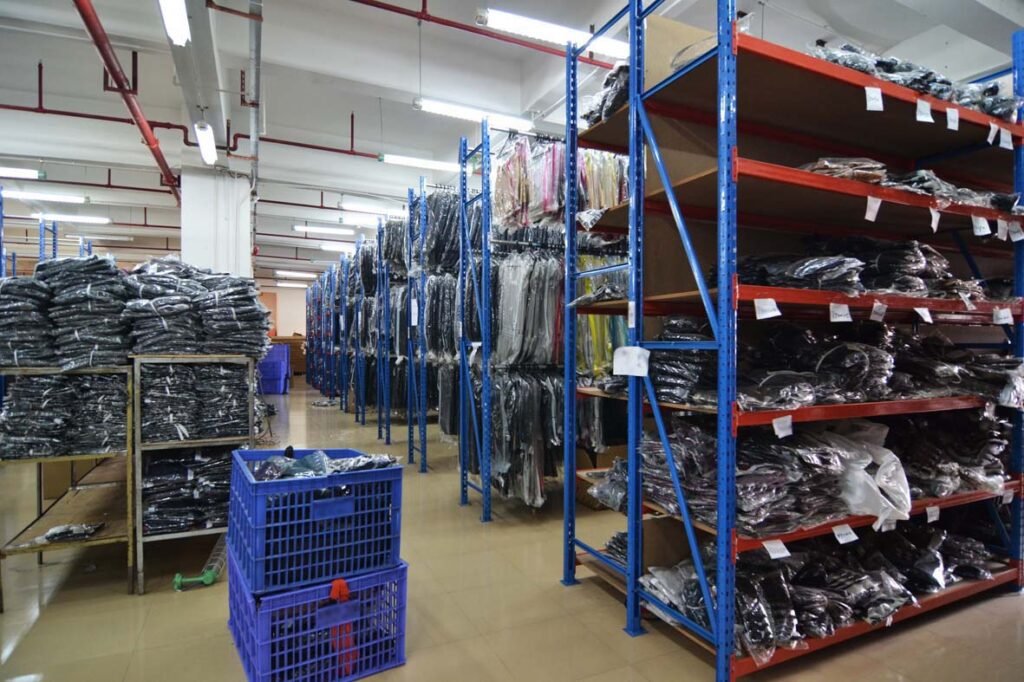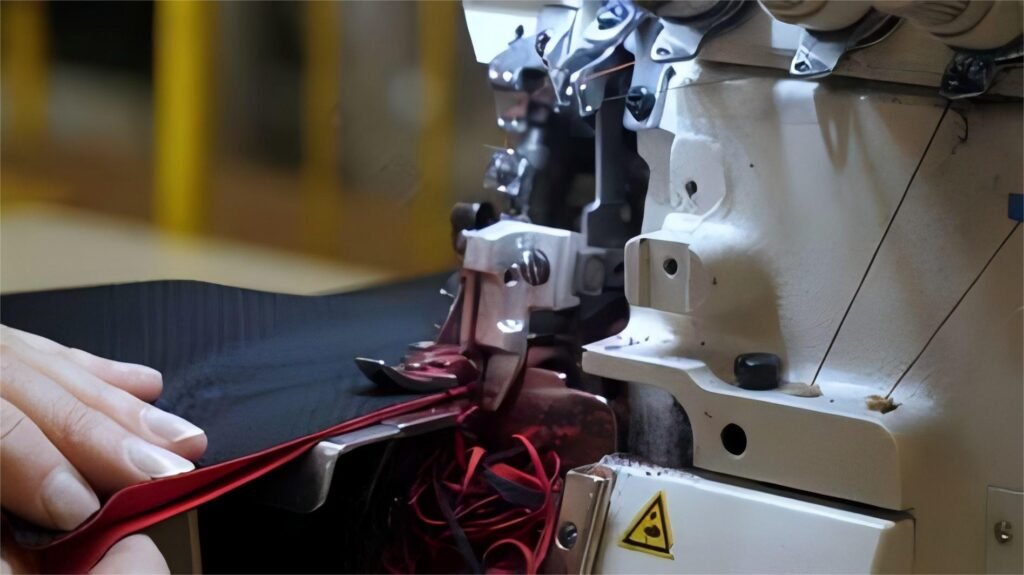No products in the cart.
Custom Yoga Pants
Organic Cotton Manufacturers: Sustainable and Eco-Friendly Fabric Suppliers
Introduction to Organic Cotton Manufacturers
Organic cotton manufacturers play a crucial role in the sustainable and eco-friendly fashion industry. As consumers become more conscious of the environmental impact of their clothing choices, the demand for organic cotton fabric has been steadily increasing. Organic cotton is grown without the use of harmful pesticides, synthetic fertilizers, or genetically modified organisms (GMOs). This makes it a healthier and more sustainable alternative to conventional cotton.

Benefits of Organic Cotton Fabric
The benefits of organic cotton fabric are numerous and far-reaching. Firstly, organic cotton is better for the environment. Conventional cotton production is one of the most pesticide-intensive crops globally, accounting for approximately 16% of all insecticides used worldwide. By choosing organic cotton, we can reduce the amount of harmful chemicals released into the environment and protect the health of farmers and surrounding communities.
Secondly, organic cotton fabric is better for our health. Conventional cotton is often treated with toxic chemicals, such as formaldehyde, to make it wrinkle-resistant or flame-retardant. These chemicals can cause skin irritation and allergic reactions. Organic cotton, on the other hand, is free from these harmful substances, making it a safer choice for those with sensitive skin or allergies.
The Rise of Sustainable Fashion
The rise of sustainable fashion has been a driving force behind the increased demand for organic cotton fabric. Consumers are becoming more aware of the social and environmental impact of the fashion industry and are actively seeking out brands that prioritize sustainability. According to a report by McKinsey & Company, the market for sustainable fashion is expected to grow by 20% annually, reaching a value of $350 billion by 2025.
Understanding Organic Cotton Certification
To ensure the authenticity and integrity of organic cotton, various certification bodies have been established. The most recognized certification for organic cotton is the Global Organic Textile Standard (GOTS). GOTS ensures that the entire supply chain, from cotton farming to manufacturing and labeling, meets strict environmental and social criteria. Other certifications include the Organic Content Standard (OCS) and the Better Cotton Initiative (BCI), which promote sustainable cotton production.

Top Organic Cotton Manufacturers Worldwide
Several organic cotton manufacturers have emerged as leaders in the industry, providing sustainable and eco-friendly fabric to fashion brands around the world. One such manufacturer is Patagonia, a renowned outdoor clothing company that has been using organic cotton since the early 1990s. Another notable manufacturer is EILEEN FISHER, a women’s clothing brand that is committed to using organic and sustainable materials in their collections.
Eco-Friendly Practices in Organic Cotton Production
Organic cotton manufacturers employ various eco-friendly practices to minimize their environmental impact. These practices include crop rotation, which helps maintain soil fertility and prevent pest infestations, and the use of natural pest control methods, such as beneficial insects and trap crops. Additionally, organic cotton manufacturers prioritize water conservation by implementing efficient irrigation systems and reducing water usage throughout the production process.
Innovations in Organic Cotton Manufacturing
In recent years, there have been significant innovations in organic cotton manufacturing. One such innovation is the development of organic cotton blends, which combine organic cotton with other sustainable fibers, such as hemp or recycled polyester. These blends offer enhanced durability and performance while maintaining the sustainability benefits of organic cotton. Another innovation is the use of regenerative agriculture practices, which aim to restore soil health and biodiversity while sequestering carbon dioxide from the atmosphere.
Collaborations between Fashion Brands and Organic Cotton Manufacturers
Many fashion brands have recognized the importance of incorporating organic cotton into their collections and have formed collaborations with organic cotton manufacturers. These collaborations not only promote sustainable fashion but also support the growth of the organic cotton industry. For example, H&M has partnered with organic cotton manufacturers to produce their Conscious Collection, which features clothing made from sustainable materials, including organic cotton.
Supporting Fair Trade and Ethical Practices in Organic Cotton Production
In addition to environmental sustainability, organic cotton manufacturers also prioritize fair trade and ethical practices. Fair trade ensures that farmers receive fair wages and work in safe conditions. Ethical practices include respecting workers’ rights, providing access to education and healthcare, and supporting local communities. By supporting organic cotton manufacturers that adhere to fair trade and ethical practices, consumers can contribute to a more equitable and sustainable fashion industry.
Challenges and Solutions in Organic Cotton Manufacturing
While organic cotton manufacturing offers numerous benefits, it also faces several challenges. One of the main challenges is the higher cost of organic cotton compared to conventional cotton. This is due to the lower yields and increased labor required in organic farming. However, as the demand for organic cotton continues to grow, economies of scale and improved farming techniques are helping to reduce the price difference.
Another challenge is the availability of organic cotton seeds. As organic cotton farming requires non-GMO seeds, there is a limited supply of certified organic cotton seeds. To address this issue, organic cotton manufacturers are investing in seed research and development to increase the availability of organic cotton seeds and improve crop yields.
Consumer Awareness and Demand for Organic Cotton Products
Consumer awareness and demand for organic cotton products have been steadily increasing in recent years. According to a survey conducted by the Textile Exchange, 66% of consumers are willing to pay more for clothing made from sustainable materials, such as organic cotton. This growing demand is driving fashion brands to incorporate organic cotton into their collections and encouraging more manufacturers to adopt sustainable practices.

The Future of Organic Cotton Manufacturers
The future of organic cotton manufacturers looks promising. As the fashion industry continues to prioritize sustainability, the demand for organic cotton fabric is expected to grow. This will lead to increased investment in organic cotton farming and manufacturing, resulting in improved technologies and practices. Additionally, collaborations between fashion brands and organic cotton manufacturers will continue to drive innovation and promote sustainable fashion.
In conclusion, organic cotton manufacturers are playing a vital role in the sustainable and eco-friendly fashion industry. The benefits of organic cotton fabric, such as its environmental and health advantages, have led to a rise in consumer demand. With certifications ensuring the authenticity of organic cotton, top manufacturers worldwide are producing eco-friendly fabric. These manufacturers employ eco-friendly practices, innovate in manufacturing techniques, collaborate with fashion brands, and support fair trade and ethical practices. Despite challenges, consumer awareness and demand for organic cotton products are growing, ensuring a promising future for organic cotton manufacturers.
